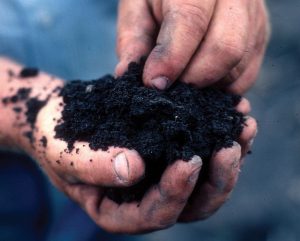Long-term study shows organic farming improves soil physical properties
 Photo credit: U.S. Department of Agriculture
Photo credit: U.S. Department of Agriculture
A recent study published in Agronomy Journal found that after 40 years of farming, organic agriculture improves physical characteristics of soil compared to conventional farming. The study compared soil characteristics of four different farming plots in a long-term farming system trial in Nebraska. Researchers compared physical soil properties including: the ability of soil particles to stick together and maintain form (aggregate stability), the susceptibility of the soil to compaction (proctor bulk density), the ability for water to filter down into the soil as opposed to running off or remaining on the soil surface (water infiltration), and the ability of the soils to retain water. They found that the organic plots (one treated with manure and another with green manure/legumes) had the ability to store significantly more water than conventional systems and that soil aggregates (clumps of soil particles) were larger and more stable in the organic plots. Finally, the organic soils were less susceptible to compaction than conventional soils. “Overall, organic farming can improve soil physical properties in the long term and provide a strategy for farmers to enhance soil physical quality and agricultural sustainability,” the authors concluded.



